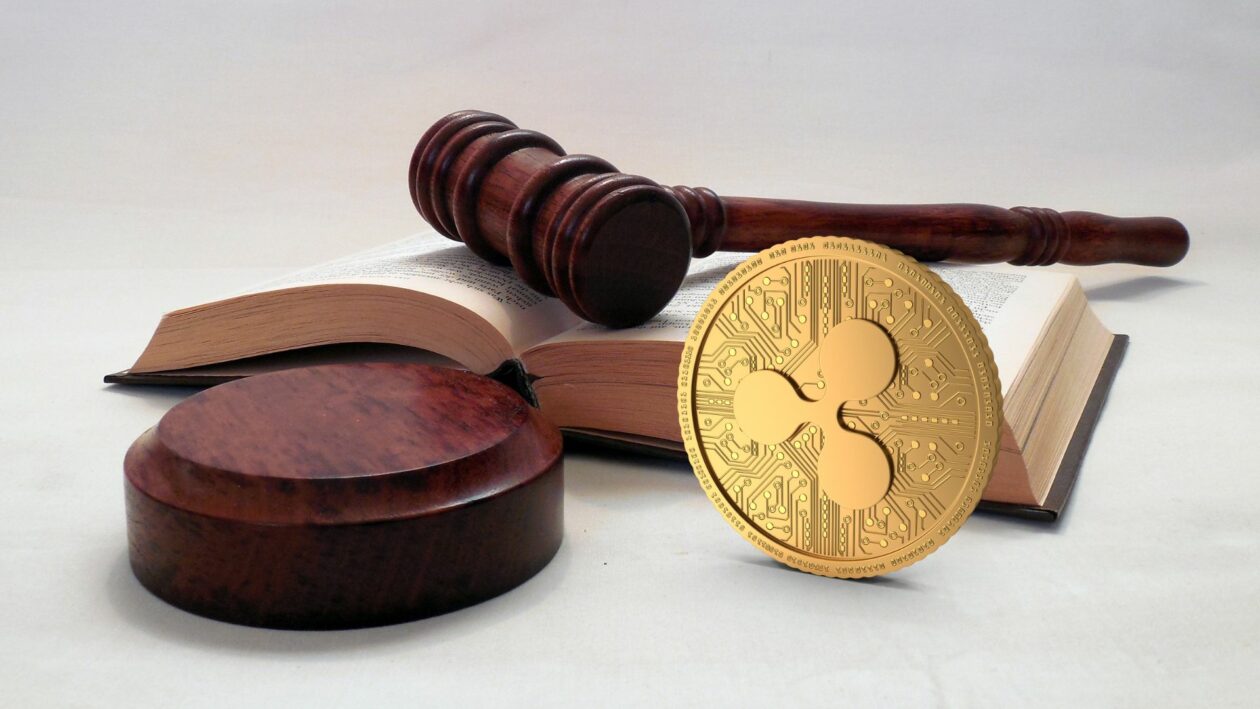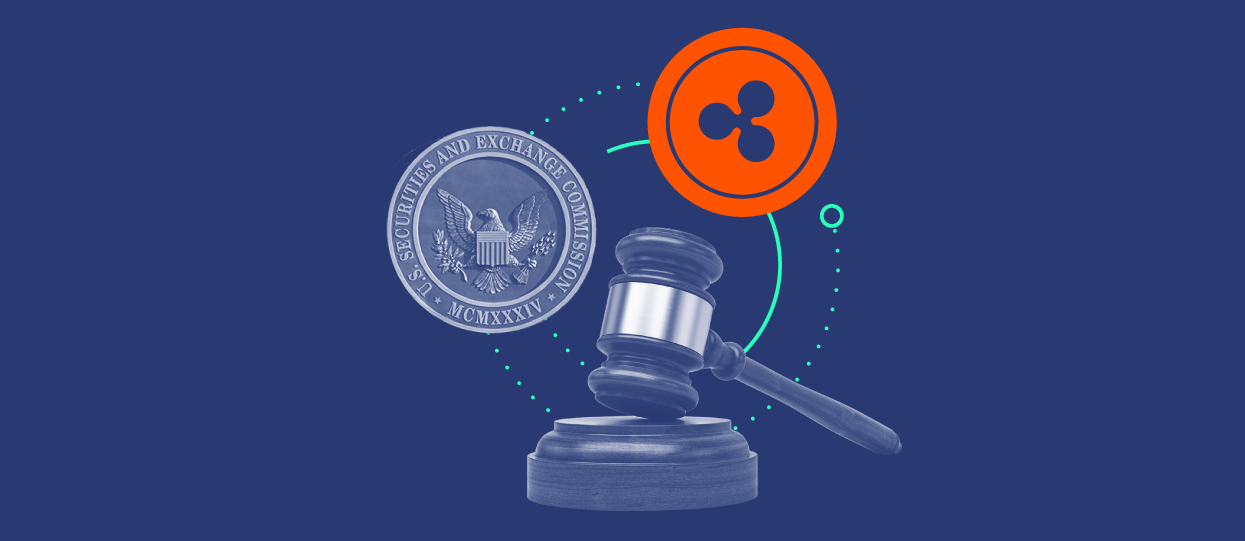Understanding The Ripple XRP Lawsuit: A Comprehensive Guide
The ongoing Ripple XRP lawsuit stands as one of the most impactful legal battles in the cryptocurrency sector, captivating the attention of investors, regulators, and enthusiasts globally. This high-stakes case between Ripple Labs and the U.S. Securities and Exchange Commission (SEC) has significant implications for the future of digital assets. As the legal proceedings progress, it is crucial for anyone involved in the crypto space to understand its intricacies and potential outcomes.
This lawsuit primarily centers on whether XRP, Ripple's native cryptocurrency, should be classified as a security under U.S. securities laws. This contentious classification has ignited heated debates and rigorous legal scrutiny. Ripple argues that XRP functions as a utility token rather than a security. The resolution of this case could set a precedent for the regulation of other cryptocurrencies in the future.
As the legal drama unfolds, it is essential to explore the Ripple XRP lawsuit in detail. This article will delve into the origins of the lawsuit, its key arguments, and its potential consequences. By providing an in-depth analysis, we aim to shed light on the lawsuit's impact on the cryptocurrency market and offer insights into the future of Ripple and the broader crypto ecosystem.
Read also:Washington State Department Of Transportation Enhancing Mobility And Connectivity
Table of Contents
- Introduction to the Ripple XRP Lawsuit
- Background of Ripple and XRP
- SEC's Claims Against Ripple
- Ripple's Defense Strategy
- Legal Precedents and Their Implications
- Impact on the Cryptocurrency Market
- Regulatory Outlook for Cryptocurrencies
- Investor Perspective and Strategy
- Future Directions for Ripple and XRP
- Conclusion and Call to Action
Introduction to the Ripple XRP Lawsuit
The Ripple XRP lawsuit has become a defining moment in the history of cryptocurrency regulation. Initiated by the SEC in December 2020, the lawsuit accuses Ripple Labs of conducting an unregistered securities offering by selling XRP tokens. This accusation has sparked extensive debate within the crypto community, as the classification of XRP as a security could fundamentally alter how cryptocurrencies are treated under U.S. law.
Central Issues in the Lawsuit
At the core of the dispute is the question of whether XRP qualifies as a security. The SEC contends that XRP was marketed and sold as an investment opportunity, meeting the criteria of the Howey Test, which determines if a financial instrument is a security. In contrast, Ripple argues that XRP is a utility token designed to facilitate fast and cost-efficient international payments, thereby serving a functional purpose rather than an investment vehicle.
Why This Lawsuit is Pivotal
The outcome of the Ripple XRP lawsuit could have far-reaching implications for the entire cryptocurrency industry. If XRP is classified as a security, it could lead to heightened regulatory scrutiny for other cryptocurrencies, potentially affecting their development and adoption. Alternatively, a ruling in Ripple's favor could pave the way for clearer regulatory guidelines and greater acceptance of digital assets.
Background of Ripple and XRP
Ripple Labs, established in 2012, is a fintech company focused on delivering global payment solutions. Its flagship product, the RippleNet platform, utilizes blockchain technology to enable rapid, secure, and cost-effective cross-border transactions. XRP, Ripple's native cryptocurrency, plays a vital role in this ecosystem by acting as a bridge currency for currency exchanges, enhancing liquidity and efficiency.
Key Features of XRP
- Swift Transaction Processing: XRP transactions are confirmed within seconds, making it an ideal solution for real-time payments.
- Minimal Transaction Fees: XRP boasts significantly lower transaction fees compared to traditional payment systems, reducing costs for users.
- High Scalability: The XRP Ledger is capable of handling thousands of transactions per second, ensuring smooth performance even during periods of high demand.
SEC's Claims Against Ripple
The SEC asserts that Ripple Labs, along with its executives Brad Garlinghouse and Christian Larsen, engaged in an unlawful securities offering by selling over $1.3 billion worth of XRP without registering it as a security. According to the SEC, Ripple's actions violated Section 5 of the Securities Act of 1933, which mandates that securities offerings be registered with the SEC or qualify for an exemption.
Evidence Provided by the SEC
The SEC has presented various pieces of evidence to substantiate its claims, including internal communications from Ripple executives, marketing materials, and sales data. These documents allegedly demonstrate that XRP was marketed as an investment opportunity, with assurances of potential returns for buyers, thereby fulfilling the criteria of a security under the Howey Test.
Read also:Understanding Weather Tornadoes Causes Safety And Science
Ripple's Defense Strategy
Ripple has mounted a robust defense against the SEC's allegations, arguing that XRP is not a security but rather a utility token. The company emphasizes that XRP serves a practical purpose within the Ripple ecosystem and does not meet the criteria outlined in the Howey Test. Furthermore, Ripple criticizes the SEC for failing to provide clear regulatory guidance regarding the classification of cryptocurrencies, which has led to confusion among industry participants.
Key Arguments from Ripple
- Functional Utility of XRP: Ripple highlights that XRP is primarily utilized as a payment settlement asset, emphasizing its role as a facilitator of transactions rather than an investment vehicle.
- Global Adoption: XRP is extensively used by financial institutions and payment providers worldwide, reinforcing its status as a utility token.
- Regulatory Ambiguity: Ripple stresses the lack of clarity in cryptocurrency regulations, urging the SEC to establish comprehensive guidelines to ensure fair and consistent treatment of digital assets.
Legal Precedents and Their Implications
The Ripple XRP lawsuit builds upon previous legal cases involving cryptocurrencies and securities laws, such as the SEC's enforcement actions against companies like Kik Interactive and Telegram. These cases have significantly influenced the current regulatory landscape and provide valuable insights into the potential outcomes of the Ripple case. The resolution of this lawsuit could set a precedent for future regulatory approaches to digital assets.
Possible Outcomes
If the court rules in favor of the SEC, it could lead to stricter regulations for cryptocurrencies, potentially stifling innovation in the industry. On the other hand, a victory for Ripple could result in more lenient regulations, encouraging further development and adoption of digital assets. The case underscores the need for a balanced approach to regulation that promotes innovation while protecting investors.
Impact on the Cryptocurrency Market
The Ripple XRP lawsuit has already had a profound impact on the cryptocurrency market. Following the SEC's lawsuit, several major cryptocurrency exchanges delisted XRP, causing its price to plummet. Investors and traders have been closely monitoring the case, with market sentiment often fluctuating based on new developments. The uncertainty surrounding XRP has affected investor confidence, leading to mixed reactions within the crypto community.
Investor Sentiment and Market Dynamics
The lawsuit has shaken investor confidence in XRP, with many holders uncertain about the token's future value. However, some long-term investors remain optimistic, believing that Ripple will ultimately prevail in court and restore XRP's value. The market's response to the lawsuit highlights the importance of understanding the legal and regulatory dynamics influencing cryptocurrency prices.
Regulatory Outlook for Cryptocurrencies
The Ripple XRP lawsuit underscores the urgent need for clearer regulatory frameworks governing cryptocurrencies. As the case progresses, it may prompt lawmakers and regulators to establish more comprehensive guidelines for digital assets. Such clarity would benefit businesses and investors operating in the crypto space, providing a stable environment for innovation and growth.
A Global Perspective on Regulation
Although the lawsuit focuses on U.S. regulations, its outcome could influence cryptocurrency regulations worldwide. Other countries may adopt similar approaches or develop their own frameworks based on the lessons learned from the Ripple case. The global crypto community is closely watching the proceedings, as the resolution could shape the future of digital asset regulation on an international scale.
Investor Perspective and Strategy
For investors, the Ripple XRP lawsuit presents both challenges and opportunities. Those holding XRP face uncertainty about its future value, while others may view the case as a chance to acquire the token at a discounted price. Developing a sound investment strategy requires a deep understanding of the legal and market dynamics at play.
Practical Tips for Investors
- Stay Informed: Keep abreast of the latest developments in the Ripple XRP lawsuit and their potential impact on the market to make informed decisions.
- Diversify Portfolios: Spread investments across various cryptocurrencies to mitigate risks associated with any single asset.
- Consult Experts: Seek advice from financial advisors or legal experts specializing in cryptocurrency investments to gain insights tailored to your investment goals.
Future Directions for Ripple and XRP
The outcome of the Ripple XRP lawsuit will undoubtedly shape the future of Ripple Labs and XRP. A favorable ruling for Ripple could strengthen its position in the global payments market and enhance the adoption of XRP. Conversely, an unfavorable ruling might necessitate significant adjustments to the company's business model or legal strategies.
Scenarios for the Future
In the event of a favorable ruling, Ripple could expand its partnerships with financial institutions and promote the use of XRP for cross-border payments, solidifying its role in the global payments ecosystem. If the court rules against Ripple, the company might need to restructure its operations, explore alternative business models, or pursue further legal avenues to challenge the decision.
Conclusion and Call to Action
The Ripple XRP lawsuit represents a critical turning point in the evolution of cryptocurrency regulation. Its resolution will have lasting effects on the crypto industry, influencing how digital assets are classified and governed. For investors, staying informed and adapting to changing market conditions is essential for long-term success in this dynamic and rapidly evolving field.
We invite readers to share their thoughts on the Ripple XRP lawsuit in the comments section below. Additionally, exploring other articles on our site can deepen your understanding of the cryptocurrency landscape. Together, we can navigate the complexities of this transformative industry and contribute to shaping its future direction.
Data and statistics used in this article are sourced from reputable publications such as CoinDesk, Cointelegraph, and official Ripple announcements.


